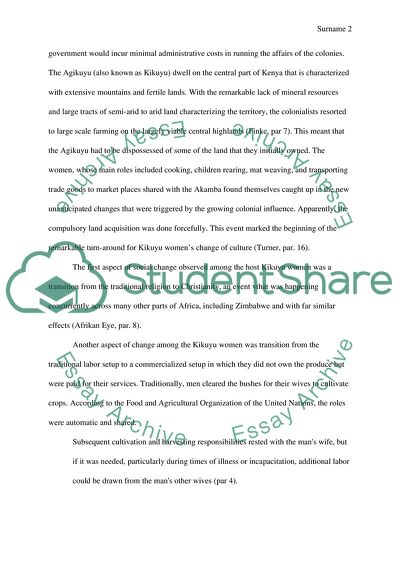Cite this document
(Changes in Roles of African Women Triggered by Colonial Rule Literature review Example | Topics and Well Written Essays - 1750 words, n.d.)
Changes in Roles of African Women Triggered by Colonial Rule Literature review Example | Topics and Well Written Essays - 1750 words. https://studentshare.org/history/1862500-women-in-african-societies-under-colonial-rule
Changes in Roles of African Women Triggered by Colonial Rule Literature review Example | Topics and Well Written Essays - 1750 words. https://studentshare.org/history/1862500-women-in-african-societies-under-colonial-rule
(Changes in Roles of African Women Triggered by Colonial Rule Literature Review Example | Topics and Well Written Essays - 1750 Words)
Changes in Roles of African Women Triggered by Colonial Rule Literature Review Example | Topics and Well Written Essays - 1750 Words. https://studentshare.org/history/1862500-women-in-african-societies-under-colonial-rule.
Changes in Roles of African Women Triggered by Colonial Rule Literature Review Example | Topics and Well Written Essays - 1750 Words. https://studentshare.org/history/1862500-women-in-african-societies-under-colonial-rule.
“Changes in Roles of African Women Triggered by Colonial Rule Literature Review Example | Topics and Well Written Essays - 1750 Words”. https://studentshare.org/history/1862500-women-in-african-societies-under-colonial-rule.


